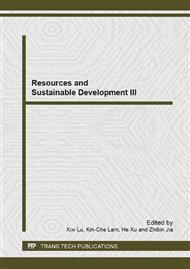p.1997
p.2001
p.2005
p.2018
p.2023
p.2027
p.2031
p.2040
p.2046
Dignitary Interests Groups are the Biggest Obstacles to Solve China’s Environmental Problems
Abstract:
China has carried out its reform since 1978. With economic booming, reform in political system followed behind so that three dignitary interests groups have formed: monopolistic entrepreneurs of state-owned companies, bigwig capitalists and bureaucratic corrupters. They are the biggest beneficiary under such a political system and they are also the original cause of social injustice and conflicts. In order to preserve their existing right, they spare no efforts to support current privileged system. They are opposed to the political reform by disturb legislation system and law enforcement. How to break the obstacles from dignitary group and achieve the goal of political reform is one of the most difficult challenges in China.
Info:
Periodical:
Pages:
2023-2026
Citation:
Online since:
June 2014
Authors:
Keywords:
Price:
Сopyright:
© 2014 Trans Tech Publications Ltd. All Rights Reserved
Share:
Citation:


